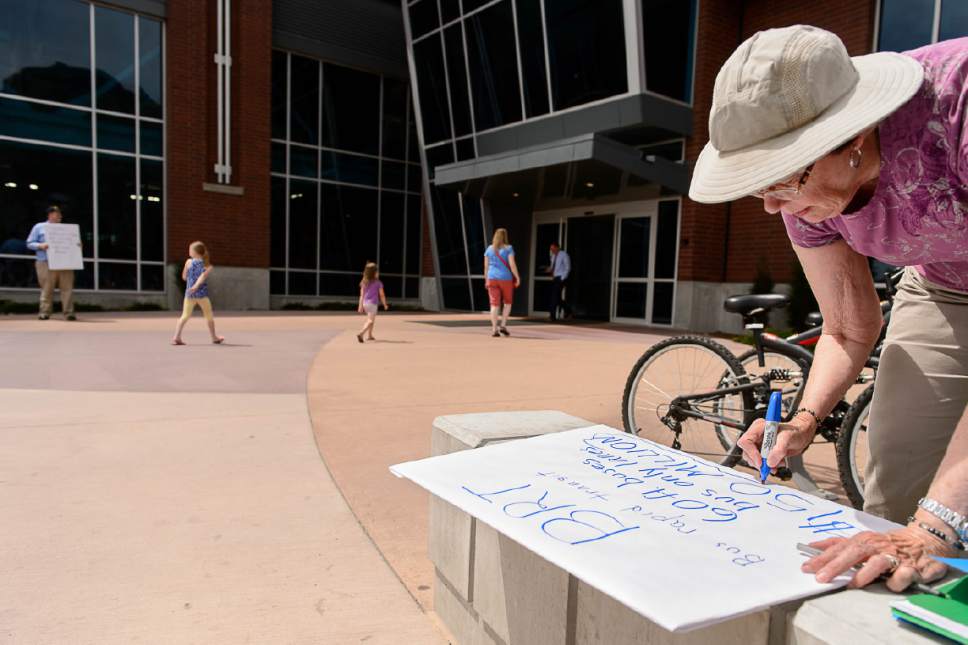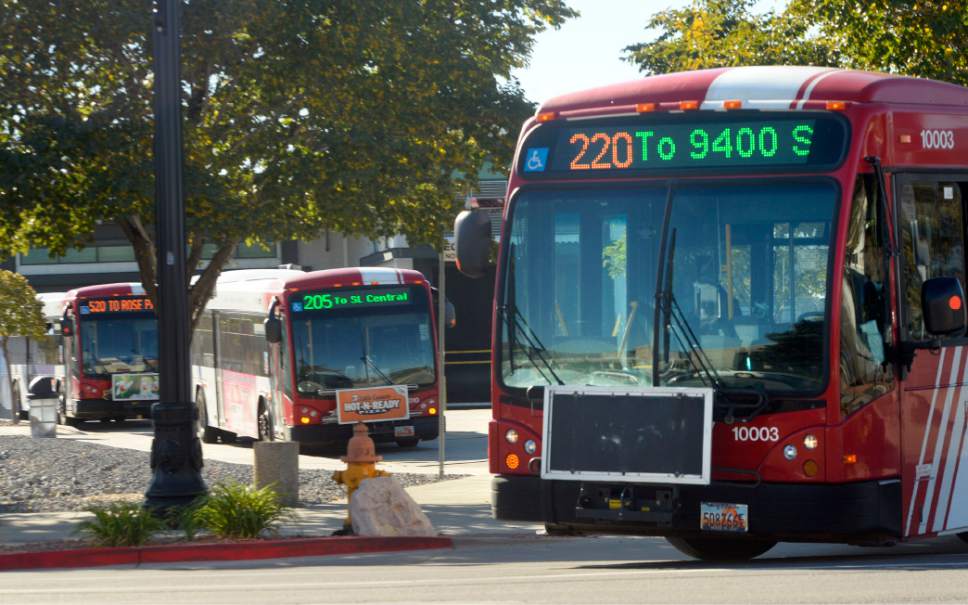This is an archived article that was published on sltrib.com in 2017, and information in the article may be outdated. It is provided only for personal research purposes and may not be reprinted.
Provo • A 4th District judge on Monday derailed a lawsuit seeking to allow Provo voters to halt a controversial $190 million bus rapid transit (BRT) project already under construction.
Judge Samuel McVey upheld Provo's contention that when its City Council last year approved a no-cost 50-year lease to allow the Utah Transit Authority to use some city streets for the project, that was an administrative act — not legislative.
The Utah Constitution allows residents to collect signatures — as a group from Provo did — to force an election about overturning any legislative action by a city council. Administrative acts are exempt from challenge via referendum.
Frank Mylar, attorney for the grass-roots group, said it is considering appealing the decision. A sister case brought by Orem residents — who had their petition for an election rejected by that city on similar grounds — is pending.
McVey noted that the Provo City Council voted in 2011 to amend its city master plan to allow and support the BRT project, and amended it again in 2014 to show an altered route.
"That is probably when this should have been contested," McVey said, noting that approval in 2011 was clearly a legislative act. He said the lease approval last year was an administrative act to continue support of BRT as promised by the earlier ordinance.
McVey said Utah Supreme Court rulings that outline what is subject to a referendum generally exclude contracts or agreements between a city and one party.
In oral arguments Monday morning, Mylar contended that the lease created new policy. He argued that if it were merely an administrative act, the mayor could have taken care of that on his own — but approval by the city's legislative body was sought instead.
The judge, however, ruled that legislative bodies may take action that is administrative.
For example, he said, a city council might approve a resolution to honor a high school sports team for winning a championship. While a rival school may dislike that and seek a referendum to overturn it, the judge said, Utah law would not allow it.
The residents group also had sought to overturn a second resolution passed by the Provo council to approve an interlocal agreement to allow participation in a committee overseeing construction of the new project.
Assistant Provo City Attorney Gary Millward argued that that is "just an advisory board to have some input on construction decisions," and permission to join it was also an administrative act. The judge agreed.
The issue already has been to the Utah Supreme Court once. It was filed there originally, as allowed when little time exists before the next municipal election. However, the high court rejected it, ruling that plenty of time was available for a district court to consider it before the November 2017 municipal election.
UTA describes BRT as "TRAX on rubber wheels," where passengers buy tickets from machines in advance. Extra-long buses would have bus-only lanes for about half their 10.5-mile route.
They may receive priority at traffic signals and would arrive about every six minutes at peak travel times under current plans.
The route includes Utah Valley University, University Mall, Brigham Young University, downtown Provo and the Provo Centre mall.
Opponents say the project is too expensive and will constrict other traffic for a BRT system that will be lightly used.
UTA and city leaders figure the project will help reduce congestion and air pollution in the long term.
Last July, the UTA board approved starting the project immediately — which critics then contended was an attempt to avoid an election defeat. The UTA board also has approved spending $120 million on the project this year.





